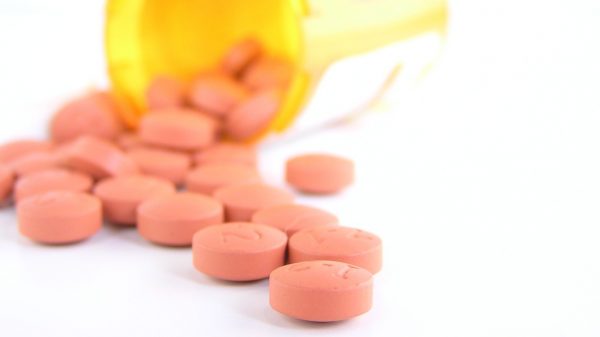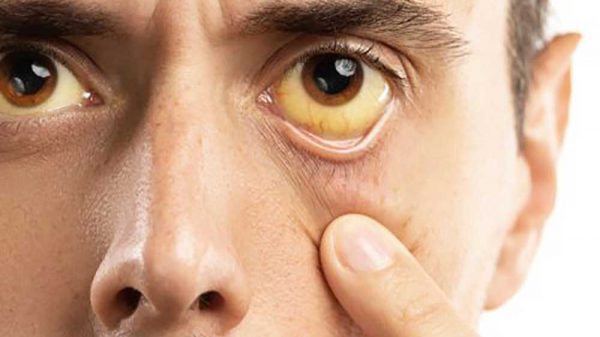How do you know if you have ascites or refractory ascites? This condition often involves the condition informally known as “beer belly,” which is linked to fluid buildup in the abdomen. It involves about 10% of ascites cases that don’t respond to treatments. As always, it’s important to know the symptoms, causes, and treatments of this condition. It will help you to deal with it better and provide effective treatments when necessary. Fun Fact: The liver is the biggest internal organ in the human body. Ascites can be linked to related conditions including liver cirrhosis, which itself is often connected to alcoholism.
Like other conditions, it’s important to treat ascites as soon as possible. This is critical because it can cause other complications. This is especially true since it’s often connected to various liver conditions. Liver failure is a serious condition so it’s critical to avoid it whenever possible. Another factor is a liver transplant can be a difficult and expensive process. The price tag can cost over $500,000 then there’s the process of being placed on a waiting list if you’re given a green light to receive a liver transplant. It’s better to get treatment for ascites as soon as possible.
What Exactly Is Ascites?
This condition involves a fluid buildup that can happen in a couple of days to a couple of weeks. This can cause an uncomfortable condition that causes various symptoms including:
- Full feeling
- Breathlessness
- Tiredness
- Nausea
- Discomfort
There are several causes of this condition although the liver disease is the most common one. Heart failure and cancer are some other common causes. Ascites itself can cause various symptoms including stomach swelling and weight gain.
The outlook for ascites is based on the health condition that’s causing it. It’s possible to check the condition’s process by monitoring weight and measuring the abdomen’s size.
Ascites takes place when there’s fluid building in the abdomen. This happens between 2 membranes that make up a smooth sac that holds the human body’s organs. The peritoneum cavity typically has a little fluid.
Several diseases can cause ascites including:
- Cancer
- Cirrhosis
- Heart Failure
- Kidney Disease
- Pancreatitis
- Thyroid (under-active)
- Tuberculosis
In cases when cancer affects certain body parts, ascites can develop. They include the liver, stomach, lungs, pancreas, breasts, etc. There are various symptoms to watch out for including nausea, breathlessness, tiredness, and loss of appetite. If you experience these symptoms it’s best to get them checked out. This condition can happen when pressure is put on various internal organs, which causes discomfort. other symptoms include stomach/back pain, bloating, and problems moving/sitting.
There are various treatment options available. For example, if ascites is caused by liver cirrhosis then patients can get benefits from taking water tablets and lowering salt. The benefit of water tablets is they can allow more frequent urine passage and prevent more fluid retention.
This treatment works in several cases. However, some kinds of ascites don’t respond to these “diuretics.” There are other situations when liver transplant might be a better option. However, this can be difficult due to the high cost, waiting list, and so on.
What Exactly Is Refractory Ascites?
This involves fluid buildup in the abdomen that doesn’t respond to most medical treatments. This makes up around 10% of all ascites cases. The goal is to help the patient stay comfortable rather than fixing the health condition. In most situations, this condition is linked to liver failure. however, other conditions can result in fluid buildup.
This condition involves fluid buildup that can be observed through medical imaging. This condition can involve other symptoms like possible buildup of the body’s white blood cells.
When a person develops ascites, this is often a sign that the body can’t process fluids and clear them effectively. Refractory-type ascites shows that the patient’s body is experiencing a major shutdown.
There are various treatment options including diuretics to release fluid and diet changes. in the case these options don’t work then a tube might be installed to remove fluid from different body parts like the abdomen.
In refractory-type ascites patients, there are a few situations. The medical treatment doesn’t fix the fluid buildup problem or it returns after the treatment ends.
This kind of ascites can be a difficult situation for both patients and their doctors. The fluid buildup can cause discomfort and might affect other organs’ functioning. This can result in other complications. Other possible issues include liver failure-linked issues like jaundice or have problems fitting into old clothes due to weight gain.
There are some practical options Fluid buildup management can help to deal with the patient’s symptoms. Other treatment methods could be used, including different treatments. One called “tapping” is used to reduce pressure on the abdomen.
When patients have had past liver issues, they should carefully watch their health while following their doctor’s treatment suggestions. this will help to prevent ascites and other serious health complications. A doctor can evaluate the patient if they observe changes. This might include tweaking the patient’s treatment

Top Ascites Treatments
1. Take diuretic medicines
This can help to lower your body’s amount of fluids. Your doctor can provide you with prescription medicines for this condition. This is an important step to take to help prevent fluid buildup in the abdomen. your doctor can suggest the best options based on your particular situation.
2. Prevention
You can even take steps to help prevent ascites from the get-go. Some options include:
- Quit smoking
- Maintain a healthy weight
- Practice sexual activity safely
- Avoid recreational drugs
- Exercise regularly
- Reduce sodium intake
- Stop consuming alcohol
Taking these steps won’t guarantee that you won’t develop ascites. However, they can certainly help to reduce the risks.
3. Fluid removal
The doctor might also remove fluid using a needle. This can be done if water tablets aren’t working or you’re having problems breathing. In both situations, the doctor might have to use this method to remove big amounts of fluid from the abdomen.
4. Reduce fluids
This includes all fluids. If you’re doing to consume them then make sure to go with healthier options. They include water, black coffee, green tea, fruit/vegetable juice/smoothies, etc. You should also stop drinking alcohol completely. This is linked to various health conditions including liver cirrhosis.
5. TIPS
This is a special procedure that involves radiation treatment. Here’s how it works. There’s a connection that’s made within the liver in-between blood vessels. This is done to reduce high amounts of pressure that’s triggering ascites.
6. Go low-sodium
This is one of the best steps to take if you have this condition. Make sure to avoid salt AND salt substitutes if they have potassium. The reason is some ascites medicines can cause potassium spikes. There are various other benefits you can get from a low-salt diet including lower blood pressure and lowering the risk of refractory ascites.























